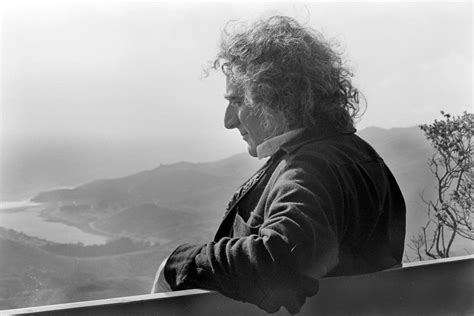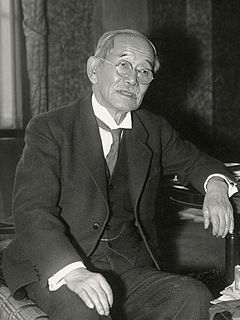A Quote by Friedrich Nietzsche
... hitherto we have been permitted to seek beauty only in the morally good - a fact which sufficiently accounts for our having found so little of it and having had to seek about for imaginary beauties without backbone! - As surely as the wicked enjoy a hundred kinds of happiness of which the virtuous have no inkling, so too they possess a hundred kinds of beauty; and many of them have not yet been discovered.
Related Quotes
I confess that I have not cleared a path through all seven hundred pages, I confess to having examined only bits and pieces, and yet I know what it is, with that bold and legitimate certainty with which we assert our knowledge of a city, without ever having been rewarded with the intimacy of all the many streets it includes.
What do I make of all this texture? What does it mean about the kind of world in which I have been set down? The texture of the world, its filigree and scrollwork, means that there is the possibility for beauty here, a beauty inexhaustible in its complexity, which opens to my knock, which answers in me a call I do not remember calling, and which trains me to the wild and extravagant nature of the spirit I seek.
To the American people of 1789, their nation promised a new way of life: each individual a free man; each having the right to seek his own happiness; a republican form of government in which the people would be sovereign; and no arbitrary power over people's lives. Less than two hundred years later, almost every aspect of the dream has been lost.
There's been a false and negative distinction that's been made between joy and happiness. Unfortunately, the message we send to those both inside and outside the church is, "Seeking happiness is superficial and shallow. Go out and get it in the world, but you won't find happiness in God." But all people seek happiness, and because they do, we're basically telling them, "Stop seeking what God Himself wired you to seek." What we should be saying is, "Seek your happiness in the right place - in God Himself."
Whereas happiness is the highest good, being a realization and perfect practice of virtue, which some can attain, while others have little or none of it, the various qualities of men are clearly the reason why there are various kinds of states and many forms of government; for different men seek after happiness in different ways and by different means, and so make for themselves different modes of life and forms of government.
Mathematics, rightly viewed, possesses not only truth, but supreme beauty a beauty cold and austere, like that of sculpture, without appeal to any part of our weaker nature, without the georgeous trappings of painting or music, yet sublimely pure, and capable of a stern perfection such as only the greatest art can show. The true spirit of delight, the exaltation, the sense of being more than Man, which is the touchstone of the highest excellence, is to be found in mathematics as surely as in poetry.
The beauty in the story is at one with suffering. That is also part of our upbringing - we don't think there could be beauty
otherwise. Beauty is the result of having been through an experience all the way through to the end - therefore it has a poignancy. Beauty that is
singular always comes from following an experience to the point where you can go no further.
Beauty has so many charms, one knows not how to speak against it; and when it happens that a graceful figure is the habitation of a virtuous soul, when the beauty of the face speaks out the modesty and humility of the mind, and the justness of the proportion raises our thoughts up to the heart and wisdom of the great Creator, something may be allowed it,--and something to the embellishments which set it off; and yet, when the whole apology is read, it will be found at last that beauty, like truth, never is so glorious as when it goes the plainest.
We know only that we are living in these bodies and have a vague idea, because we have heard it, and because our faith tells us so, that we possess souls. As to what good qualities there may be in our souls, or who dwells within them, or how precious they are, those are things which seldom consider and so we trouble little about carefully preserving the soul's beauty.









































